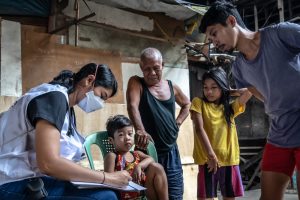Abdullah Matucan/BIO
COTABATO CITY— Among the tasks entrusted to the Bangsamoro Transition Authority (BTA), the interim government in the Bangsamoro Autonomous Region in Muslim Mindanao (BARMM) until a regular government is elected in 2025, is the enactment of the Bangsamoro Electoral Code (BEC). But the question that lingers among many Filipinos, not just BARMM residents, is why the region needs its own electoral code.
The answer is straight and simple and can be found in Section 4, Article IV of Republic Act No. 11054 or the Bangsamoro Organic Law (BOL), which clearly mentioned that “The Bangsamoro Government shall adopt an electoral system which shall be consistent with national election laws, allow democratic participation, encourage the formation of genuinely principle political parties, and ensure accountability.”
Why an electoral system specifically designed for Bangsamoro is needed? Well, the Bangsamoro people have a long narrative of struggles. Even though they have already established an autonomous government, they are still baffled by challenges in the pursuit of their right to self-determination—a right prominently embodied in Article I of the Charter of the United Nations (UN).
In UN’s declaration on decolonization states, it explicitly says “All peoples have the right to self-determination; by virtue of that right, they freely determine their political status and freely pursue their economic, social, and cultural development.” This right and their other constitutional rights clearly outlined the legitimate cause of the Bangsamoro constituents to determine what’s best for themselves.
In pursuit of this legitimate cause and desire to govern themselves, the Bangsamoro people, represented by the Moro Islamic Liberation Front (MILF), sat at a peace negotiation table with the Government of the Philippines (GPH), which led to the signing of the Comprehensive Agreement for the Bangsamoro (CAB) in 2014.
One of CAB’s Principle of Implementation has recognized the Bangsamoro people’s legitimate right to self-determination. It explicitly outlined the “establishment of a new Bangsamoro political entity that will protect individual and collective rights, and be truly democratic, representative of the diversity of the populace, and accountable to the communities therein.” Later in 2019, the BOL was signed into law and established the BARMM.
The enacted law defined that the BARMM shall have a democratic political system that allows its people to participate freely in the political processes within its territorial jurisdiction. It further stated that the form of government shall be parliamentary. (Section 3, Article IV of BOL)
Because of these provisions vis-a-vis the recognition of the Bangsamoro people’s right to self-determination, the BTA is tasked to enact essential laws consistent with the framework of existing laws that allow and advances the economic, social, and cultural development of the Bangsamoro constituents.
As a law-making body of the regional government, the enactment of several priority codes mentioned in the BOL is enshrined in the BTA parliament. One of these measures is the electoral code that would define the structural, functional, and procedural principles on matters pertaining to elections in the region, primarily in the parliament. This law, along with other vital legislation, shall be enacted within the transition period.
BTA Floor Leader Atty. Sha Elijah Dumama-Alba, also the chair of the Committee on Rules, shared during the committee deliberations of the proposed bill on February 6 that the regional government needs to enact the law.
“It is very important to have a code that would embody the structural, functional, and procedural principles of having elections in the BARMM, particularly on parliamentary elections,” Dumama-Alba said.
As of this writing, the BEC, with corresponding Bill Number 29, is currently under committee deliberation after a series of public consultations in Manila and the core territories of the region. Though it has generated contention among the election watchdog and other stakeholders on some of its provisions, BEC generally gained public support.
Accordingly, the proposed measure, like any other legislation in the country, polarizes the public, particularly on its adherence to the 1987 Philippine Constitution. In a public consultation held in Maguindanao del Sur last month, BTA Deputy Speaker Atty. Yasser Sema stressed that such a scenario in legislation is not unusual.
Another lawyer and BTA deputy speaker, Lanang Ali Jr. holds almost the same view as his colleague. During one of the exclusive interviews regarding the BEC, he shared that the ultimate goal is to pass legislation that would embody the principles of moral governance.
Clearly, the answer to why BARMM needs an electoral code is more legal than political. BTA is mandated under the law to enact an electoral code. The BEC is crucial because there’s no existing law providing for the manner of electing the members of the Bangsamoro Parliament in the region.


